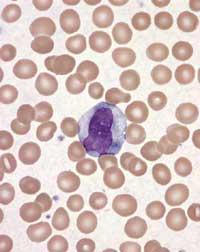Skin cancer immunotherapy
Tumors have a great ability to fight body defense mechanisms. And for the body they are not foreign, like bacteria, and it seems that the body attacks them more weakly. Fortunately, some tumors have antigens in the skin and respond to the immune system. Melanoma is one of the most dangerous types of skin cancer. T lymphocytes are attacked by a family of caregivers in our body. However, for years scientists have not been able to apply the strength of these lymphocytes to therapy.

The window of success seems to open up at the U.S. Cancer Institute. As reported today through the journal Science, 6 out of 13 patients who have participated in the program taking advantage of T lymphocytes have managed to reduce the size of tumors by 50%, while four others have seen slightly reduced. People affected by melanoma participated in the session. They all had skin cancer spread to other organs and a life expectancy of a few months. The treatment has managed to extend
the life of 10 between 6 and 24 months.
To develop treatment, researchers collected tumor samples from these 13 patients and searched for and collected T lymphocytes that may be present in them. In total, more than 50 groups. Subsequently, one by one, each group was integrated into other patient tumors to identify which was the most effective. This protocol reduced the initial batch to 2-3 groups.
But it was not enough to know what was the most aggressive group. Each patient had to produce many lymphocytes from this group to effectively attack the tumor. But the immune system can’t be told to “produce this,” so they tricked it a bit. Patients underwent chemotherapy, as chemotherapy destroys body guards and greatly weakens the immune system. In this situation, selected
T lymphocytes were introduced to patients, achieving greater than normal reproduction.
Researchers are satisfied with the results obtained, but do not know what will happen in the long term and with larger groups. Although some patients have attacked tumors spread to the lung and liver, it has not worked with other patients and researchers do not know why. But above the big challenge they face, research lead Steven Rosenberg believes that the protocol developed at the Cancer Institute can adapt to other cancers.
Buletina
Bidali zure helbide elektronikoa eta jaso asteroko buletina zure sarrera-ontzian








